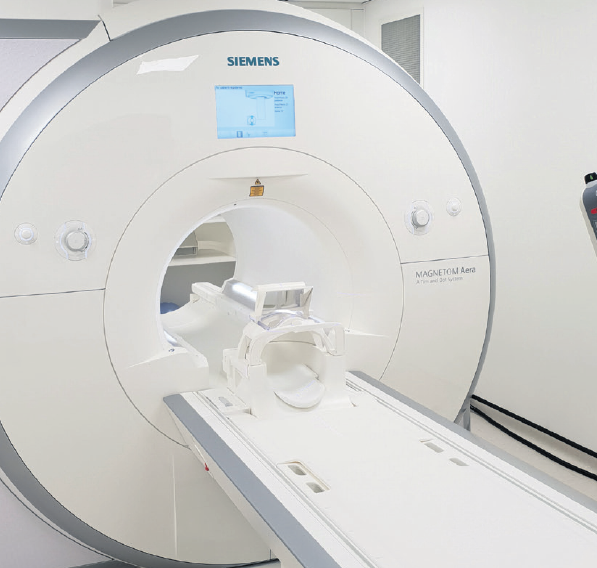- Patients
- Exploring cancer care
- Conditions we treat
- Leukaemia
- Acute lymphoblastic leukaemia
Introduction
Acute lymphoblastic leukaemia
Acute lymphoblastic leukaemia treatment at GenesisCare
We are specialists in the latest techniques for diagnosing and treating all types of cancer, including acute lymphoblastic leukaemia. We have teams of highly trained cancer specialists that are experts in this disease who work together to evaluate the newest, evidence-based approaches so we can offer these to every patient – without delay.

Treatment overview
Chapter 1
Treatment overview
Treatment for acute lymphoblastic leukaemia may include chemotherapy, steroids, targeted therapy, immunotherapy, transplants and radiotherapy. We combine this with consultant-led integrative care, such as wellbeing therapies and psychological support, to help you achieve the best possible outcome. Our qualified physiotherapists and wellbeing consultants will carefully plan these therapies tailored to your needs by working with you and your consultant.
Acute lymphoblastic leukaemia (ALL) is a type of blood cancer that affects specific types of white blood cells called lymphocytes, and most often develops in children and young adults. These cells form in the bone marrow from stem cells called lymphoid stem cells. Acute lymphoblastic leukaemia develops quickly and aggressively, so it‘s important to start treatment as soon as possible.
According to Cancer Research UK, less than 1,000 people are diagnosed with acute lymphoblastic leukaemia each year in the UK. Although it‘s a rare condition, ALL is the most common type of leukaemia that affects children, accounting for 85% of leukaemia cases in children under 15. Early diagnosis and the right treatments at the right time help many people have an improved outcome.
Other types of leukaemia are:
We are the UK‘s leading specialist private cancer care provider and by choosing us, you can be reassured that your treatment will be managed by a team of specialists working together, with you, to decide the best personalised care plan for your diagnosis.
It is our commitment to offering world-class care to every patient with cancer.
How is acute lymphoblastic leukaemia treated?
There are a number of options of treatment available for acute lymphoblastic leukaemia at GenesisCare, such as:
- Chemotherapy – anti-cancer (cytotoxic) drugs which destroy the cancerous cells
- Steroids – anti-inflammatory medication that kills the cancerous cells and improves the effectiveness of other acute lymphoblastic leukaemia treatments
- Growth factors – natural compounds that help the bone marrow to replace damaged white blood cells and stem cells
- Targeted therapy – a specialised group of drugs that attack or block certain processes in the cancer cells, causing them to die
- Immunotherapy – drugs that help your body‘s immune system recognise and fight the cancer
- Radiotherapy – high-energy radiation beams which are targeted at the cancer cells
- Transplants – replace abnormal blood cells and damaged stem cells
Contact us
These web pages provide more information about acute lymphoblastic leukaemia treatment at GenesisCare. If you would like to contact us in confidence, we will be happy to answer any of your questions.
Diagnostics
Chapter 2
Diagnostics
How is acute lymphoblastic leukaemia diagnosed?
At GenesisCare, we diagnose and treat a wide range of cancers and we understand that this can be a very worrying time. Our diagnosis services are first-class and our commitment is to give you the answers you need, as quickly as possible. It‘s important to remember that symptoms can often be caused by other conditions, not acute lymphoblastic leukaemia. Whatever your diagnosis, we can make sure you get the expert care you need and without delay.
If you‘re concerned about acute lymphoblastic leukaemia symptoms or an abnormal blood test result, we offer fast access to specialist acute lymphoblastic leukaemia tests and diagnostics through our dedicated Rapid Access Haematology Service within our centres. Here you‘ll see one of our expert consultant haematologists who specialise in blood and bone marrow cancers. They‘ll assess your symptoms and, if necessary, refer you for diagnostic tests such as blood tests, bone marrow aspirate biopsy, or a CT scan. Appointments are usually available within 24 hours.
How is acute lymphoblastic leukaemia diagnosed?
Symptoms of acute lymphoblastic leukaemia develop over time and usually become more noticeable as your body produces more immature white blood cells.
Signs may include:
- Fatigue
- Breathlessness
- High temperature and sweating
- Pale skin if you have white skin or greyish skin if you have brown or black skin
- Red or purple spots on your skin
- Bruising and bleeding
- Lumps or swelling
- Pains in your bones or joints
- Abdominal discomfort
- Repeated infections
If you have any concerns, you should seek medical advice or book an appointment through our Rapid Access Haematology Service
Rapid Access Haematology Service
Our specialist team of haematology consultants can assess and diagnose conditions quickly so you can get the answers you need and plan any treatment immediately.

Drug treatments
Chapter 3
Drug treatments
At GenesisCare, we offer all drug therapies that can be used to treat and manage acute lymphoblastic leukaemia, including many of the newest treatments. Depending on how these treatments are given to you, you may need to attend one of our private chemotherapy suites which are staffed by our specialist nurses. Our compassionate nursing teams are available 24/7 on a dedicated on-call telephone service and can answer any queries during your treatment. They'll be able to provide advice about side effects or symptoms and help arrange appropriate medical care when needed.
Our centres have all received the Macmillan Quality Environment Mark to reflect the quality of care we provide for people living with cancer.
There are different types of drug treatments, also called systemic anti-cancer therapies. Our expert teams continually review and assess new treatments to make these available to GenesisCare patients as early as possible.
Chemotherapy for acute lymphoblastic leukaemia
Chemotherapy is the main treatment for acute lymphoblastic leukaemia and it involves the use of cytotoxic (anti-cancer) drugs that destroy cancer cells. You may have chemotherapy on its own or in combination with other treatments such as leukapheresis, a therapy that filters excessive white blood cells from the body.
When treating acute lymphoblastic leukaemia, chemotherapy is given in three phases. Each phase can be made up of multiple cycles:
- Induction phase – This phase aims to kill all leukaemia cells in your bone marrow and relieve any symptoms
- Consolidation phase – A combination of chemotherapy drugs are administered to destroy any remaining leukaemia cells
- Maintenance phase – This involves treatment such as low-dose chemotherapy to stop leukaemia coming back long term.
Your doctor may recommend a course of high-dose chemotherapy if initial treatment doesn‘t improve your condition. This intensive chemotherapy can successfully treat acute lymphoblastic leukaemia. If eligible, you‘ll need to have a bone marrow or stem cell transplant alongside this treatment.
Steroids for acute lymphoblastic leukaemia
Steroids are anti-inflammatory drugs that can be used to fight against acute lymphoblastic leukaemia. They can be given on their own to kill the leukaemia cells or prescribed alongside other treatments such as chemotherapy to increase its effectiveness and manage side effects.
Growth factors for acute lymphoblastic leukaemia
Growth factors are natural compounds that stimulate the bone marrow to produce more white blood cells and stem cells. Granulocyte colony stimulating factor (G-CSF) is a type of growth factor that is sometimes used in acute lymphoblastic leukaemia treatments. It is usually given to you as an injection under your skin or through a drip directly into your bloodstream. G-CSF may be given to you:
- After chemotherapy to increase the number of white blood cells in your body and reduce your risk of infection
- Before or after a stem cell transplant to increase the number of stem cells in your blood
Targeted therapy for acute lymphoblastic leukaemia
Targeted (also called biological) therapies are a specialised group of drugs that have been designed to attack or block certain processes in cancer cells that tumours depend on to survive and grow. The main type of targeted therapy for acute lymphoblastic leukaemia is a group of drugs called tyrosine kinase inhibitors. These stop the signalling processes on the outside of cancer cells that encourage them to grow and divide.
There are several tyrosine kinase inhibitors which are used to manage acute lymphoblastic leukaemia. Your doctor will recommend the most appropriate treatment for your condition.
Immunotherapy for acute lymphoblastic leukaemia
Immunotherapies work by helping your body‘s immune system to recognise and fight the cancer. Acute lymphoblastic leukaemia can be treated with monoclonal antibodies (MABs) which specifically target receptors found on the outside of B-lymphocyte cells (both cancerous and non-cancerous). When the monoclonal antibodies attach to the protein, it triggers your body‘s immune system to attack the cells and kills them. Some monoclonal antibodies can also be used to deliver toxic chemotherapy directly into the leukaemia cell.
CAR T-cell therapy is a new type of immunotherapy that treats B cell acute lymphoblastic leukaemia. During this therapy, a sample of your T-cells (the white blood cells that fight infections and cancer) is taken and genetically modified to target specific proteins on cancer cells. The CAR T-cells are multiplied in a lab and put back in your bloodstream to help fight cancer.
Palliative care
If your cancer has spread to other parts of the body, it‘s called advanced or metastatic acute lymphoblastic leukaemia cancer. At GenesisCare, you can receive palliative drug treatment for advanced acute lymphoblastic leukaemia, to reduce your cancer’s progress and ease any symptoms.
Personalised medicine
For some advanced cancers, we use specialist tests, such as liquid biopsy or genomic testing, to understand the genetic make-up of cancer cells. This helps us to identify which drugs are available to work against the particular genetic mutations in a cancer, allowing us to start effective treatment without delay.
Clinical trials
There may be opportunities to access clinical trials for the newest treatments for acute lymphoblastic leukaemia. Clinical trials can be considered a suitable treatment option if you‘ve exhausted standard therapies or evidence suggests the trial treatment will be more successful at treating your condition. Your haematologist will discuss these opportunities in more detail with you.
Drug treatment side effects
No treatment is without side effects. Your doctor will explain these to you depending on your drug treatment, together with the ways in which your treatment plan and supportive care can help manage or minimise these
Transplants
Chapter 4
Transplants
Transplants are often used to replace abnormal white blood cells and form part of an overall treatment and care plan for acute lymphoblastic leukaemia.
Our consultants themselves, or in collaboration with other leading haematologists who are experts in transplants for blood and bone marrow cancers, will discuss the option of a transplant and decide the best course of treatment for you. If your consultant recommends a transplant, this can be arranged conveniently at one of our partner hospitals. You can then continue your other treatments at GenesisCare.
Stem cell and bone marrow transplants
Stem cells are early types of cells which are found in your bone marrow and can develop into red blood cells, white blood cells and platelets. When treating acute lymphoblastic leukaemia, stem cell and bone marrow transplants are used to replace the abnormal white blood cells.
Stem cell transplants are more commonly used than bone marrow transplants for treating acute lymphoblastic leukaemia. You‘ll usually have an allogeneic stem cell transplant, where the stem cells are from an appropriately matched donor.
Your consultant may suggest a transplant for acute lymphoblastic leukaemia if your condition:
- Has features that show it‘s likely to come back (high–risk)
- Has come back after treatment (relapsed)
Transplant side effects
No treatment is without side effects. Your doctor will explain these to you, together with the ways in which your treatment plan and supportive care can help manage or minimise these.
Radiotherapy
Chapter 5
Radiotherapy
Radiotherapy uses targeted, high-energy radiation beams to destroy cancer cells. It‘s not usually the main treatment option for acute lymphoblastic leukaemia patients, however, you may receive it before a transplant.
At GenesisCare, we are the leading private provider of radiotherapy in the UK and offer world-class expertise, state-of-the-art facilities and advanced radiotherapy techniques. Our latest-generation radiotherapy machines (called linacs) deliver highly targeted radiation beams that are designed to be effective while minimising the radiation dose to healthy tissues.
Your treatment will be governed by our expert multidisciplinary teams (MDTs), consisting of oncologists, radiotherapists and medical physicists, who work together to ensure that you receive only the best possible care.
Total body irradiation (TBI) delivers radiation to your whole body and is used to help kill leukaemia cells in the bone marrow before a bone marrow or stem cell transplant.
Side effects of radiotherapy
No treatment is without side effects. Your doctor will explain these to you before you start your course of radiotherapy, together with the ways in which your treatment plan and supportive care can help manage or minimise these.

Integrative care
Chapter 6
Integrative care
Integrative care
At GenesisCare, we do more than just treat your cancer. As part of our unique and integrative approach to cancer care, you can expect the best possible care and a personalised treatment plan that includes access to life-changing therapies which are proven to improve cancer-related outcomes. These therapies will be tailored to you to help you manage and cope with your cancer as well as the specific side effects of treatment.
Exercise medicine
Exercise medicine is a personalised programme of carefully planned and supported physical activity that has been shown to improve outcomes for cancer patients, enhancing quality of life and limiting the impact of cancer, such as by improving strength and reducing fatigue. One of our physiotherapists specialising in exercise for people living with cancer will provide a 12-week programme tailored to your needs and supported by our dedicated GenesisCare Exercise Medicine app. They’ll work closely with you to monitor changes in your health and support you throughout the programme to help you get the best results. This is available at selected GenesisCare centres.
Wellbeing
We also offer a wellbeing expert and holistic therapies such as counselling, acupuncture, massage and reflexology through our unique partnership with the Penny Brohn UK charity. This service is available to all acute lymphoblastic leukaemia patients at any of our 14 UK centres.

Why choose us?
Chapter 7
Why choose us?
GenesisCare is a leading private provider of cancer care, offering the latest innovations and techniques that are proven to be safe and effective. If you choose us for acute lymphoblastic leukaemia treatment, you'll be under the care of a team of experts, including consultant oncologists, surgeons and haematologists. They'll design a personalised care plan based around your diagnosis and preferences, with treatment starting within days if needed. Every patient is also supported through their journey with life-changing therapies, such as exercise medicine and psychological support.
Our dedicated cancer centres are convenient and easy-to-access. You can use your private medical insurance and we‘re recognised by all leading insurers.
We are proud that so many patients rate our care as excellent as we help them through their cancer journey. Find out more about the unique experiences from people who have had their cancer diagnosis or treatment at GenesisCare in our patient stories section.
Read next

Doctors
Our doctors
GenesisCare works with many leading and experienced cancer doctors who share our commitment to providing excellent patient care

Centres
Our centres
With 440 centres across the world, we're continuing to diagnose and treat without delay, bringing specialist care closer to our patients in the UK, Spain, Australia and the US.

Cancer care
Exploring cancer care
We are the UK’s leading private provider of advanced radiotherapy and cancer care. We offer fast access to the latest technology and treatments that has been proven to make a difference.

Cancer care
How can we help?
Accessing world-class cancer care is easier than you think. Follow these easy steps to get treatment, tests and scans, or a second opinion at GenesisCare, and find out the different ways of funding your cancer care.

Patient support
Patient stories
We believe patients can be our teachers and trusted advisers, benefiting from their unique experiences.